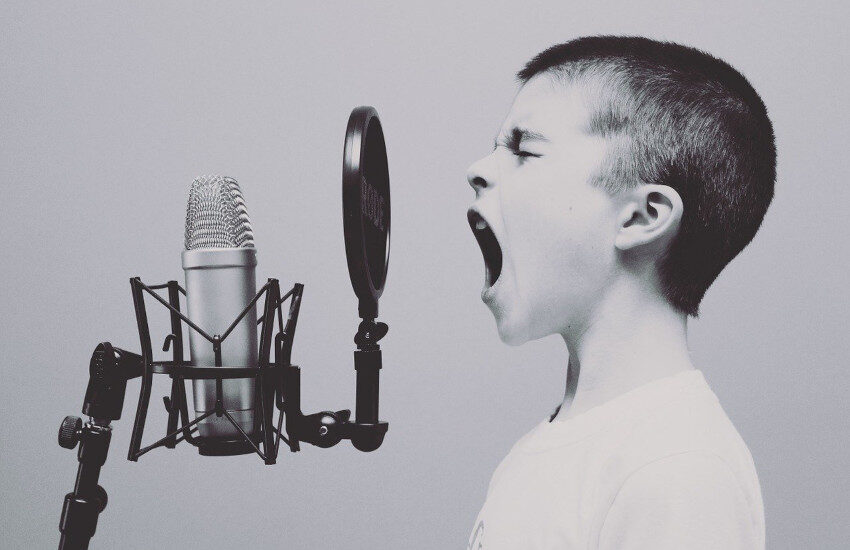Most people playing music can agree music is just another language to have a conversation and express the things they want to say. Because after all, music can convey and cause happiness, sadness, melancholy and so many other emotions. But the problem for a lot of players is, that it takes them a long time to be able to express themselves on their instrument. So what causes this? It probably has to do a lot with the way we study music.
Learning to speak your language
When we are children learning to speak, we gradually do so. We are not even aware we are trying to learn, we just absorb what we hear in the world around us and recreate the sounds we hear. Probably because we are curious and think it’s fun.
Learning in this way is great, because words are connected to emotions and desires, and any “mistakes” we make aren’t seen as such. We get to experiment all day long and nobody (including ourselves) judges us when we are struggling. On top of that, we are able to practice with people who are already very skilled in using the language. How amazing to be surrounded by experts all day long to learn from! As we progress and get older we find our own voices, carefully choosing words, expanding our vocabulary, and becoming fluent in communicating what we feel and desire in our own unique ways.
Traditional musical learning
Now let’s look at how me learn music. As little music babies we sit down with our shiny new instrument. Instead of learning gradually and just listening to a lot of music (and trying to reproduce it), a lot of us look for easy ways to learn as fast as possible. Probably by plundering a site with bass tabs or buying some sheet music. When we make “mistakes” we feel bad and judge ourselves for it.
If we want to practice with someone else, we usually need to find someone of our own level to do this with, no expert will waste time on a musical baby! Also, instead of developing a feeling for the language gradually, one of the first things we do is open a book about all the grammar (music theory) that we should keep in account, learn it and use it as rules to limit ourselves in the way we play music.
YouTube inspiration about studying music
Sounds pretty counterintuitive right? You aren’t the only one who will agree this is probably not the way to go. These concepts about learning music like a language, are not something that miraculously came to me. There have been a lot of wonderful minds that already thought about this in great detail. One of them is Victor Wooten. Together with TED-Ed, Victor recorded a great 5 minute video about this exact concept.
Tollak Ollestad on Musicality
Another great video about this same topic is by my good friend Tollak Ollestad. Besides his amazing playing and musicallity, Tollak also has a wonderful outlook on music. Tollak talks about playing using your ears, having great instincts, great timing, feel and groove, and also about playing with emotion and feeling. This video definitely needs more views than the 1000 it has right now.
Change the way you study music
To become a true musician, and really experience music to the fullest, we have to rethink how we learn but also teach music. Music is not a trick, or something you do to impress the people around you. Music in the essence is a way to express ourselves in a deep manner. In a manner where our spoken language sometimes falls short.
I hope this article inspires you to change the way you study music. Make it your business to develop your instincts, ears, groove, timing and feel, and try to play with feeling every time you pick up your instrument. Because music is a language, focus on being good at conversation. Listen, respond and only say something when it’s meaningful. Focus on strengthening your own connection to music and don’t be reliant on bass tabs. Being able to really express yourself and communicate through music, are the most rewarding things any musician can accomplish.
I hope you found this article helpful! Let me know in the comments what your thoughts are and if you have any questions or suggestions.

